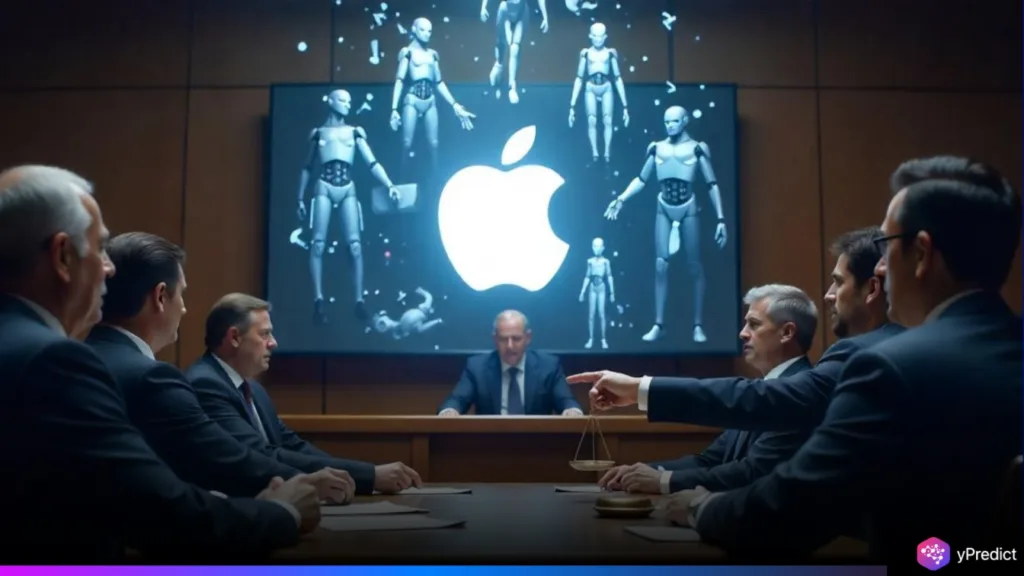
Apple Inc. faces mounting legal and investor pressure after a class-action lawsuit accused it of misleading shareholders about artificial intelligence progress. Filed on June 20, 2025, the suit claims Apple overstated Siri’s AI readiness and the broader “Apple Intelligence” platform. Investors allege these claims inflated stock prices and caused massive financial losses when Apple disclosed delays in its AI initiatives. This case reflects growing investor skepticism toward AI hype and may redefine accountability for promoting speculative innovation to markets.
Investors Demand Verifiable Roadmaps, Not Buzzwords
According to Reuters, Apple Inc. is facing a huge legal threat after shareholders filed a proposed class action complaint, alleging that the firm misled investors about the development and readiness of its artificial intelligence (AI) programs, particularly the Siri voice assistant.
Shareholders filed the complaint in the U.S. District Court for the Northern District of California against Apple and key executives. They accuse Apple of downplaying the time and complexity required to integrate advanced AI features into Siri. Shareholders argue that this downplaying contributed to inflated expectations, weaker iPhone sales, and a sharp decline in stock value.
The lawsuit names CEO Tim Cook, CFO Luca Maestri, and former CFO Kevan Parekh as defendants in the legal action. Shareholders, led by investor Eric Tucker, argue Apple’s June 2024 WWDC presentations gave AI a pivotal iPhone 16 role. They claim these presentations misled investors and set unrealistic expectations about the immediate integration of advanced AI features.
The unveiling of “Apple Intelligence” was framed as a significant enhancement to Siri’s capabilities, promising a more intuitive and powerful user experience. However, the lawsuit claims that, at the time, Apple lacked a functional prototype of the AI-driven Siri features and had no viable plan to deliver these upgrades with the iPhone 16 as suggested.
The Fallout of Siri’s Stalled Progress
Public concerns about Apple’s AI progress surfaced in March 2025 when the company postponed key Siri improvements until 2026. The lawsuit claims this announcement began revealing that Apple had overstated its AI readiness to investors and the market. Further disappointment came during the 2025 WWDC, where analysts noted Apple provided no meaningful updates on Siri’s AI enhancements.
The complaint highlights the financial fallout from these developments. Since hitting a record high on December 26, 2024, Apple’s share price has declined by nearly 25%, erasing nearly $900 billion in market capitalization. The lawsuit seeks damages on behalf of shareholders who claim to have suffered substantial losses during the period ending June 9, 2025.
Conclusion
The lawsuit, filed under Tucker v. Apple Inc., No. 25-05197, could have ripple effects for how AI roadmaps are disclosed in earnings calls, product announcements, and shareholder reports. Legal experts say the case may embolden similar suits across the tech sector, especially against firms that have made aggressive AI forecasts without delivering functional technology.
Furthermore, the case underlines the growing conflict between innovation marketing and technology feasibility, which may drive businesses to temper forward-looking AI statements with greater openness.
Apple has not issued a public response to the lawsuit. Meanwhile, scrutiny continues over whether the company’s AI disclosures misrepresented the true state of its technology. In the meantime, Industry observers, including prominent commentators, have questioned the substance behind Apple’s AI announcements, fueling further debate about the risks of overpromising in the competitive AI race.







